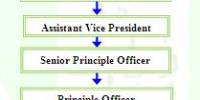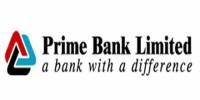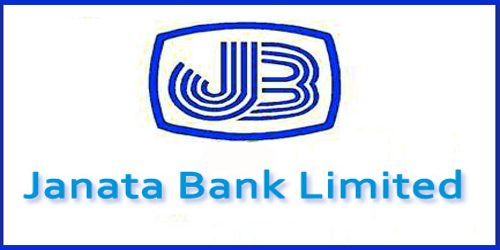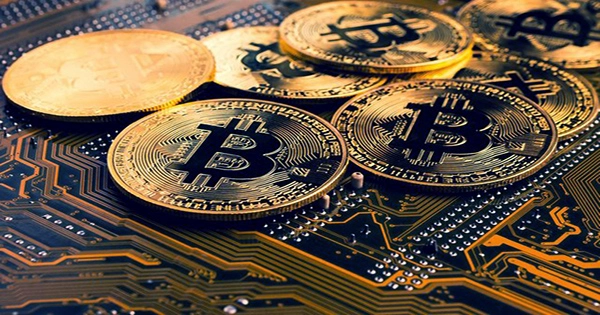INVESTMENT POLICY & THE DIFFERENT MODES USED BY SIBL
Islami Banking:
An Islamic bank is a financial institution which operates with the objective to implement and materialise the economic and financial principles of Islam in the arena of banking.
“An Islamic Bank is a financial institution whose status,rules and procedures expressly state its commitment to the principle of Islamic Shariah and to the banning of the receipt of interest on any of its operations”-OIC.
The Organisation of (Ali & Shaskar 1995, pp-20-25) Islamic bank is a “company which carries on Islamic banking business …. Islamic banking business means banking business whose aims and operations do not involve any element which is not approved by the religion Islam” (Act No 4.276).
Dr. Ziauddin Ahmed says, “Islamic banking is essentially a nomative concept and could be defined as conduct of banking in consonance with the ethos of the value system of Islam” (lbid).
INVESTMENT POLICY OF SIBL
The special feature of the investment policy of the bank is to invest on the basis of profit loss sharing system in accordance with the tents and principles of Islamic Shariah. Earning profit is not the only motive and objective of the Banks investment policy rather emphasis is given in attaining social good and in creating employment opportunities for the desiring peoples of Bangladesh.
Accordingly the plan envisages composition of the investment profit-folio with for agriculture and rural investment, 16% for industrial term investment, 14% for industrial working capital, 6% for housing and real estate, 6% for transport and communication, 2% for electricity, gas, water and sanitation services, 2% for storage’s 40% for import, export and local trade and trade related activities and % for other productive purposes by the end of the plan period, i.e. the year 2004.
Further, in order to diversify investment profit-folio, the bank engaged itself in investment operations through special schemes introduced during the years. The Bank is planning to introduce new investment schemes in addition to welfare oriented investment schemes such as Rural Development scheme. Its new investment schemes are Transport investment schemes, car investment scheme, small business investment schemes, Doctors investment scheme, Household Durables investment scheme, Housing investment scheme and agricultural implements investment scheme etc. Besides the bank is financing various economic groups in different sectors in both urban and rural areas for upliftment of their economic condition.
Investment operation of a Bank is very important as the greatest share of total revenue is generated from it, maximum risk is centered in it and the very existence of a Bank mostly depends on prudent management of its Investment Port-folio.
For efficient deployment of mobilized resources in profitable, safe and liquid sector a sound, well-defined and appropriate Investment Policy is necessary.
The important feature of the investment policy of the Bank is to invest on the basis of profit-loss sharing system in accordance with the tenets and principles of Islami Shariah. Earning of profit is not the only motive and objective of the Bank’s investment policy rather emphasis is given in attaining social good and in creating employment opportunities.
A sound well defined, well planned and appropriate investment policy frame work is a pre-requisite for achieving the goal of the Bank i.e. implementation and materialization of the economic and financial principles of Islam in the Banking area and justice in trade, commerce and industry and to build socio-economic infrastructure, create opportunity for income and sustained economic growth of the country.
OBJECTIVE AND PRINCIPLES OF IVESTMENT OPERATIONS OF SIBL
The objectives and principles of investment operations of the Banks are:
- The investment fund strictly in accordance with the principles of Islamic Shariah.
- To diversifies its portfolio by size of investment, by sectors (public and private), by economic purpose, by securities and by geographical area including industrial, commercial and agricultural.
- To ensure mutual benefit both for the Bank and the investment client by professional appraisal of investment proposals, judicious sanction of investment, close and constant supervision and monitoring therefore.
- To make investment keeping the socio-economic requirement of the country in view.
- To increase the number of potential investors by making participatory and productive investment.
- To finance various developments schemes for poverty alleviation, income and employment generation with a view to accelerating sustainable socio-economic growth and upliftment of the society.
- To invest in the form of goods and commodities rather than give out cash money to the investment clients.
- To encourage social upliftment enterprises.
- To shun even highly profitable investment in fields forbidden under Islamic Shariah and is harmful for the society.
- The Bank extends investments under the principles of Bai-Marabaha, Bai-Muazzal Hire purchase under Shairkatul Meilk and Musharaka. The Bank is making sincere efforts to go for investment under Mudaraba principle in near future.
SALIENT FEATURES OF INVESTMENT
Observance of the legal investment limit of the bank.
Observance of the legal investment limit of the client.
Optimum utilization of investable fund.
Profitability of the investments.
Safety and security of the investments.
Investment at minimum possible risk.
Liquidity of investments.
Conform to central bank’s investment restrictions.
Preference to short term investments.
Preference to the investments for small size.
Satisfactory return on investments.
INVESTMENT MODES OF SIBL
Investment is the action of deploying funds with the intention and expectation that they will earn a positive return for the owner. An Islamic bank makes a direct investment in short, medium & long-term projects in commercial, industrial, agricultural, real estates and housing, transport & other services. A profit-loss sharing bank, particularly the SIBL anges in may types of financing arrangements.
There are three Investment Modes which are:
- Partnership Mode (Share Mechanisms)
- Mudaraba
- Musharakah
- Trading Mode(Bai Mechanism)
- Bai Murabaha
- Bai Muajjal
- Bai Salam
- Bai Istishna’a
- Leasing Mode (Ijara Mechanism)
- Hire purchase (Ijarah)
- Hire purchase under Shirkatul Malk
Partnership mode (Share Mechanism):
a) Mudarabah:
It is a form of partnership where one party provides the funds while the other provides the expertise and management. The first party is called the Sahib-Al-Maal and the latter is referred to as the Mudarib. Any profit accrued are shared between the two parties on a pre-agreed basis, while capital loss is exclusively borne by the partner providing the capital.
b) Musharaka:
An Islamic financial technique that adopts “equity sharing” as a means of financing projects. Thus, it embraces different types of profit and loss sharing partnership. The partners (entrepreneurs, bankers) etc.) share both capital and management of a project so that profits will be distributed among them as per rations, where loss is shared according to ratios of their equity participation.
Trading ModeS (Bai Mechanism)
a) Bai Murabaha:
Bai-Mudarabaha may be defined as a contract between a buyer and a seller under which the seller sells certain specific goods (permissible under Islamic Shariah and the Law of the land), to the buyer at a cost plus agreed profit payable in cash or on any fixed future date in lump-sum or by installments. The profit marked-up may be fixed in lump-sum or in percentage of the cost price of the goods.
b) Bai – Muajjal:
Bai-Muajjal may be defined as a contract between a buyer and a seller under which the seller sells certain specific goods (permissible under Islamic Shariah and the Law of the Country), to the buyer at a cost plus agreed profit payable in cash or on any fixed future date in lump-sum or by installments. The seller may also sell the goods purchased by him as per order and specification of the Buyer.
c) Bai Salam:
Under this mode Bank will executive purchase contract with the client and make payment against purchase of product, which is under process of production. Bai-Salam contract will be executed after making any investment showing price, quality, quantity, time, place and mode of delivery. The profit to be negotiated. It this mode the payment as the price of the goods is made at the time of Agreement and the delivery of the goods is deferred.
d) Isteshna’a:
Isteshna’a is a contract between a manufacturer/seller and a buyer under which the manufacturer/seller sells specific product(s) after having manufactured, permissible under Islamic Shariah and Law of the Country after haying manufactured at an agreed price payable in advance or by installments within a fixed period or on/within a fixed future date on the basis of the order placed by the buyer.
Leasing Mode (Ijara Mechanism):
a) Hire Purchase /Ijarah:
The term Ijarah has been derived from the Arabic works Ajr and Ujrat which means consideration, return, wages or rent. This is really the exchange value or consideration, return, wages, rent of service of an Asset. Ijarah has been defined as a contract between two parties, the Hiree and Hirer where the Hirer enjoys or reaps a specific service on benefit gainst a specified consideration or rent from the asset owned by the Hiree. It is a hire agreement under which a certain asset is hired out by the Hiree to a Hirer against fixed rent or rentals for a specified period.
b) Hire Purchase Under shirkatul Melk:
Hire purchase under shirkatul Melk is a special type of contract which has been developed through practice. Actually, It is a synthesis of three contracts: Shirkat, Izara and sale. Shirkat means partnership. sharikatul Melk means share an ownership. When two or more persons supply equity, purchase an asset, own the same jointly, and share the benefit as per agreement and bear the loss in proportion to their respective equity, the contract is called Shirkatul contract.
Stages of Hire Purchase under Shirkatul Melk:
Thus Hire Purchase under Shirkatul Melk Agreement has got three stages:
- Purchase under joint ownership.
- Hire and
- Sale and /or transfer of ownership to the other partner Hirer.
There are two other modes of investment which have limited
Impact in our country:
a) Quard:
The word “Quard” is an Arabic word” which means loan or credit on advance. The literal meaning of Quard is giving “Fungible goods” for use without any extra value returining those goods. It must follow the principle of equal for equal return with homogenious goods. Fungible goods may be rice, oil, salt, money etc. In banking sector, money is used as quard. Quard is Halal by Islam for not to pay any extra or interest in return.
b) Quard-E-Hasana:
Quard-E-Hasana is also one kind of Quard which is given with the expectation of return or not.
Special Schemes under Investment Modes:
a) Small Business Investment Scheme:
Bangladesh a third-wood developing country is rich in natural and human resources. In spite of vast possibilities, the majority people of the country livening hardship-below poverty tapped, explored and exploited. Physical labor is their only means of earning. A large segment of this populace is active youth force. Many of them are efficient, intelligent and energetic with initiative & drive and have courage to tale risks. But they can not uplift their socio-economic condition due to poverty, lack of financial support and other required facilities. Lack of capital compelled many small traders to leave their profession. As a result in our country not only unemployment problem increased but also the young generation is involved in anti-social activities; thus creating threat to the social life
b) Real Estate Investment Program:
Professionals, Service-holders, Businessmen, Real Estate Developer and other categories of people who are not entitled for availing investment facilities under Housing Investment Scheme, shall be eligible under this program Investment is to be extended to build new houses and for extension/ completion of the house already constructed, commercial building, shopping complex, flat apartment etc.
c) Transport Investment Program:
Under this scheme, investment in being allowed to the existing successful businessmen and potential entrepreneurs in this sector for all types of road and water transport with simple and easy terms and conditions. The bank is also extending investment facilities to multinational companies, established, business houses and well to do officials and professionals for acquisition of private cars, microbus and jeeps.
d) Rural Development Scheme:
Islami Bank Bangladesh limited (SIBL) envisages an economic system based on equity and justice. Taking into consideration that majority of the population below poverty line lives in rural Bangladesh, the Bank has devised a Rural Development Scheme (RDS) with a view to creating employment opportunity for them and alleviates their poverty through income generation activities.
The SIBL through its RDS project has been implementing integrated programs.
For the landless poor, eage laborers and marginal farmers aimed at meeting their basic needs and promoting their comprehensive development. Consciousness among the poor needs to be enhanced so that they can firm up their position in the socio-economic structure of the country. In order to consolidate their economic base, invested money should be used in income generating activities so the poorer section of the population can become self-reliant. RSD works for the realization of that objective.
e) Micro Industries Investment Scheme:
Bangladesh as a developing country has been trying for its overall economic growth. One of the major problems confronting its growth is lack of development of enterprises and potential entrepreneurs who can create more job opportunities by establishing new enterprises in the industrial sector. There are a number of educated unemployed youths and also skilled & semi skilled unemployed persons in the country. Besides, every year quite a good number of youths are coming out of the general/technical educational institutions to add to this already crisis ridden employment market.
Development programs and efforts will bring no meaningful result unless and until income generating employment opportunities can be created for the growing number of unemployed people including the educated unemployed youths. Establishment and expansion of micro industries can play a vital role in creating more employment opportunities as well as in the overall socio-economic development of the county.
Social Investment Bank Limited has been appreciably participating in this direction by financing industrial sector. With a view to creating wider base for industries, the Bank has decided to launch “Micro Industries Investment Scheme” through its Branches. This scheme has been devised to career to the investment needs of those persons who intend to set-up new micro industrial ventures or to restructure their old units by way of BMRE involving a total cost of TK. 5.00 lakhs.
This is intended mainly to create new jobs for the educated, skilled & semi unemployed and also to encourage those who remain outside the purview of investment due to shortage of funds and insufficient collateral. The scheme has been prepared with easy terms and conditions to encourage the small entrepreneurs, educated unemployed youths and skilled/ semi skilled persons to come forward for establishment of micro industries commensurate with the local demand.
f) Special Schemes:
Cash Waqf provides a unique opportunity for making investment in different religious, educational and social services. Savings made from earning by the well off and the rich people of the society can be utilized in our organized manner. Income earned from these funds will be spent for different purposes like the purposes of the waqf properties itself.
SOWT ANALYSIS
Not surprisingly, in the competitive arena of marketing era SWOT analysis is a must based on Product, Price, Place and Promotion of a financial institute like private bank. From the SWOT analysis we can figure out ongoing scenario of the bank. So to have a better view of the present banking practices of Social Islami Bank Ltd.
In SWOT analysis two factors act as prime movers
1 Internal factors which are prevailing inside the concern which include Strength and weakness.
2 On the other hand another factor is external factors which act as opportunity and threat.
STRENGTH
Usage of faster PC Bank software.
Membership with SWIFT.
Good banker-customer relationship.
Online banking system.
Islami Shariah based banking system.
Energetic as well as smart work force.
Competitive Profit provider comparing with other Islamic Bank.
Strong Financial Position.
Efficient administration
WEAKNESS
1 Reluctance to ad campaign.
2 Existing manual vouchers.
3 Lack of consumer credit scheme.
4 Manpower is not sufficient.
5 Marketing policy is not well setup.
6 Limited number of branches in its network.
7 Officers have limited experience and not enough trained
8 Many inexpert and laggard assistant officers.
9 The bank has no ATM service
10 Insufficient number of deposit Scheme and loan.
OPPORTUNITY
1 Huge business area.
2 Introducing consumer credit scheme.
3 Growth of sales volume.
4 Introducing branch banking through online.
5 Develop relations and correspondence with foreign banks.
6 More concentrated Banking based on Islamic Shariah.
7 Few Competitors practicing Islamic Banking.
THREATS
1 Competitors have more attractive deposit schemes.
2 Bangladesh Bank has no well established Islami Banking Rules.
3 Different classic services of other banks.
4 Entrance of new private commercial banks.
5 Young, energetic, dynamic, talent and smart work force of competitors.
6 Govt. imposes high rate of taxes and VAT.
7 Political unrest and Economic recession.
8 Illegal business operation by the some clients.
FINDINGS AND ANALYSIS
1 SIBL profit earning capacity is not satisfactory.
2 Its marketing strategy is not well designed.
3 Existing Human Resources are not sufficient for SIBL. They have to recruit more skilled employees.
4 Number of Branches are not satisfactory, SIBL have to give more emphasize on increasing number of Branches.
5 Recruitment and selection process is a time consuming and lengthy process and irregular.
6 The whole activities of SIBL is not computerized, still there exist manual record keeping system.
7 Sometimes Islami Shariah are not properly followed.
8 Job security is lower in SIBL.
9 Insufficient training program for the employees.
10 Slower in modernization comparing with its competitors.
11 The working environment in any branch is not congenial & appropriate. The working desk provides sound pollution. It looks like a hall room.
12 The modern technology is not used in the recruitment and selection process. The backdated methods are using for selection till today.
13 Salary structure of SIBL is satisfactory comparing with other Islamic Banks, the pension policy and the payment of pension to the employees are very fair and transparent.
14 The transfer and promotion process is fair but the promotion is not faster.
15 Loan facilities are very attractive to the employees of SIBL.
16 Most of the policies are backdated. Only the authority amends the policy but preserve the old policy.
17 There is no policy to build up harmonious relationship among the employees. The employees cannot protest the injustice of the authority because the pure trade union is absent there.
18 The record keeping system is also backdated, not followed computerized system properly
19 Security system of many branches is not sufficient.
RECOMMENDATION
- SIBL should concentrate in increasing its profit earning capacity.
- It should develop effective marketing strategy to attract new customers.
- Raising the capital, statutory reserve and increase the investment.
- The number of branches should be increased
- Expand and diversify customer base.
- Upgrade Online Banking.
- Recruit more skilled employees regularly.
- Bank should introduce independent ‘Marketing Department’
- Personal relationship should be build with the customers.
- Customers are the heart of the organization. They should provide more space in the office and if possible they should have some entertainment facility.
- The employee of the branch should be trained continuously.
- Few branches are not under online banking system, so all the branches should confirm on line banking system.
- More meetings, seminars, symposiums and get-together should be organized by the Branches to develop the awareness among the clients of the Bank about Islamic Banking and its advantages.
- Ensure stable dividend.
- Ensure high level customer service.
- The Bank should follow Islami Sharia strictly in every of its operation.
- Bank should introduce ATM system.
- Should introduce one-stop service centre.
- Bank should keep their annual report, brochure, bulletin etc. available to provide their customer.
- Bank should introduce consumer credit scheme.
- Bank should increase their office space and take more care in interior decoration.
- Bank should introduce independent ‘Marketing Department’.
- Some new investment schemes are to be introduced for socio-economic development and welfare of the distressed humanity.
- Finally the Bank should has the vision to automate its all operations and functionalities and should be committed to achieve the goal to be a lead Bank in the country both in service and in technical aspect and to fulfill the requirements of mass people.
CONCLUSIONS
Today the banking service is very competitive. From the practical materialization of customer dealing procedure during the whole period of my practical orientation in Social Islami Bank limited I have reached a firm and concrete conclusion in a very confident way. I believe that my realization will be in harmony with most of the banking thinkers. It is quite evident that to build up an effective and efficient banking system to the highest desire level, computerized transaction is must.
Social Islami Bank Ltd. is a new generation Bank. It is committed to provide high quality financial services/products to contribute to the growth of G.D.P of the country through stimulating trade and commerce, accelerating the pace of industrialization, boosting up export, creating employment opportunity for the educated youth, poverty alleviation, raising standard of living of limited income group and overall sustainable socio-economic development of the country. The is not so far when it will be in a position to overcome the existing constraints and it may be expected that by establishing a network over the country and by increasing resources this bank will be able to play a considerable role in the portfolio of development of financing.
Success in the banking business largely depends on effective lending. Less the amount of loan losses, the more the income will be from credit operations. The more the income from credit operations the more will be the profit of the Social Islami Bank Ltd. and here lays the success of credit financing.
It can be argued that though the results achieved so far are not satisfactory, credit financing is a modern scientific technique for enhancing Social Islami Bank’s strength and there lies the opportunities to make it more effective in the future for our own benefit.
From the learning and experience point of view I can say that I really enjoyed my internship at Social IslamiBank Ltd. from the very first day. I am confident that this 03 (Three) months internship program at Social Islami Bank Ltd. will definitely help me to realize my further carrier in the job market.
BIBLIOGRAPHY
1. Annual Report of Social Islami Bank Limited (2010)
2. Several Booklets from Social Islami Bank Ltd.
3. Several Newsletter s from Social Islami Bank Ltd.
4. Social \ Islami Bank web site, www.al-arafahbank.com
5. Credit Operational Manual of Social Islami Bank Limited.
6. ‘SHARIAH MANUEL’ published by Social Islami Bank Limited.
7. www.siblbd.com, www.islamibankbd.com
8. www.bangladeshbank.org
9. www.wikipedia.org
















